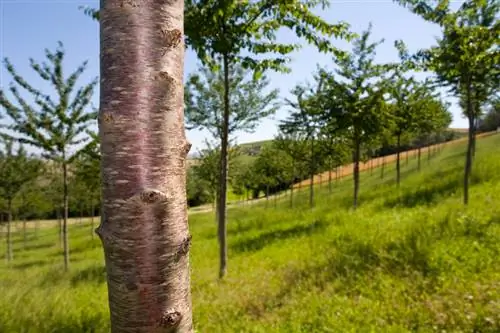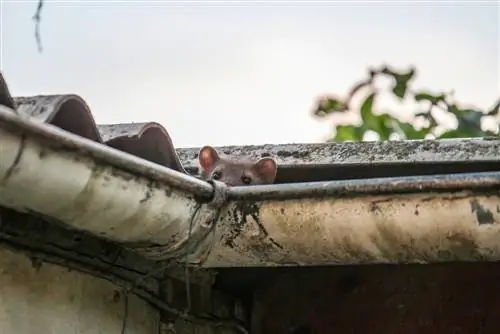- Author admin leonars@hobbygardeners.com.
- Public 2023-12-16 16:46.
- Last modified 2025-01-23 11:22.
Martens are active in summer and winter. However, they can be caught in winter but not in summer. Why is that? Find out more about marten activities in summer below.

Why are martens more active in summer?
Martens are particularly active in summer, as the mating season is from late July to early September. During this time, male martens leave their territory and can engage in aggressive behavior, such as coming into contact with car inner tubes.
The cycle of martens throughout the year
Marten in summer
The annual cycle of martens begins right here: in summer. The mating season is from the end of July to the beginning of September. At this time, male martens in particular are particularly active and leave their territory. In summer, drivers complain about an unusually high level of marten damage, because this is where “new” martens encounter other people's territories, smell the smell of their rivals and become aggressive. This behavior has cost many a hose their lives.
Marten in autumn
After the marten has been mated, nothing happens at first. She doesn't get any fatter either, because she's not really pregnant: the fertilized egg goes into so-called dormancy - for seven months. During this time the egg rests in the uterus.
Marten in winter
Martens do not hibernate and have to provide their food even in winter. Marten traces can often be found in the snow in winter. However, activity decreases in winter, on the one hand to save energy and on the other hand because there are no strenuous things like searching for mates. However, 7 months after mating, the marten female's one-month pregnancy begins.
Marten in spring
So three to four marten cubs are born in March. They are dependent on their mother for six months!
Closed season for martens
During their closed season, animals are not allowed to be hunted or caught and, at least, killed. The reason for this is, among other things, that their young should not starve miserably if the mother is injured. The closed season for martens depends on the federal state, but is usually between the beginning of March and mid-October.






